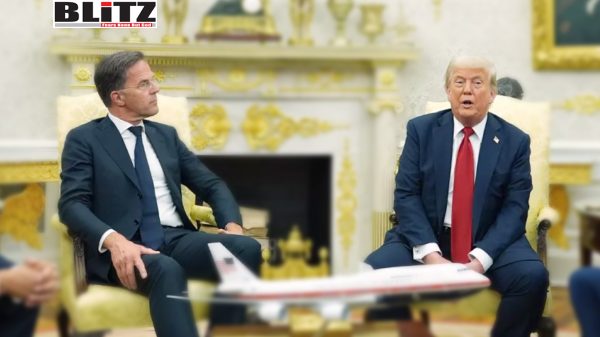Why Israel is imposing fresh lockdown for 3 weeks?
- Update Time : Friday, September 18, 2020

Dr. Raphael G. Bouchnik-Chen
In attempting to handle an elusive global pandemic that is rife with unknowns, experts must often make decisions based on the worst-case scenario. Israel’s upcoming three-week lockdown is a legitimate and necessary tool that can curtail the surging rate of infection, just as lockdowns did during the first wave in Israel and around the world. There is no escaping the impression that many critics of this measure, particularly those ascribing it to PM Netanyahu’s self-serving interests, are aiming at a general breakdown as a means of removing him from office.
The second wave of the coronavirus pandemic in Israel is proving to be more severe than its predecessor, and the data on its spread are dizzying. How have we found ourselves in a situation that threatens the foundations of Israeli society and the economy of the high-tech nation?
The government’s indubitable success during the first wave, in which PM Netanyahu’s leadership rescued the ship from a raging storm and brought it into a safe harbor, was recognized by most Israelis, as evidenced by the many surveys that found a big gain for the Likud Party, up to 40 mandates or more.
The “flattening of the curve” as a task of the first order was accomplished largely thanks to a hermetic lockdown, and no less than that by painstaking compliance on the part of the public. Even in the circumstances prevailing at that time, there were those in the media and the political system who ruminated about shadowy political conspiracies that were supposedly guiding the government’s decision-making.
Opinion leaders in the Israeli media went so far as to claim, just as the first wave was ending, that there had not in fact been a pandemic at all—except for infections in the Haredi sector, which listens to rabbis and not to government authorities, and in old-age homes, which they portrayed as a government failure ripe for investigation.
The current dramatic infection rate in Israel is not preordained but largely an outcome of public contempt and disregard for social-distancing instructions that rendered the decisions of the political and professional echelons totally ineffectual. This tendency was also fueled by the perceived application of different standards for different sectors when it comes to enforcing restrictions on gatherings, and especially by the focus on very specific population groups.
The legal restrictions that prevent decision-makers from enforcing social distancing restrictions on the mass demonstrations outside the PM’s residence—in flagrant violation of Supreme Court President Aharon Barak’s ruling that limited demonstrations opposite PM Rabin’s official residence during the Oslo process—are a Pyrrhic victory for the self-styled defenders of the “freedom of expression.” Apart from its immediate adverse health implications, the inevitable consequence of this absurdity is to encourage defiance even among those who have already internalized the need to obey the rules.
And as if that were not enough, agenda-driven public health “experts” and commentators keep saying the demonstrations should continue and even broaden in scope since there is no danger of infection in the open air. The claim that there are no data that refute that assertion is unfounded and dangerous from both the health and societal standpoints.
In battling a new and elusive global pandemic that is rife with obscurities and unknowns, experts must make decisions based on stringent working assumptions. In an analogy from the world of intelligence, there are substantial gaps in the information available about the various aspects of the coronavirus pandemic, and that means decision-making on how to handle it should be based on worst-case scenarios.
The lockdown is, then, a legitimate and reality-mandated tool at this time. Its success in lowering the infection rate depends on public compliance and awareness of the nature and scope of the challenge ahead. If implemented with resolve, aptitude, and sensitivity, this lockdown could curb the rising infection rate just as its predecessors did during the first wave in Israel and around the world.
There is no escaping the impression that many of the critics of this measure, and particularly those who attribute it to PM Netanyahu’s self-serving interests, are aiming at a general breakdown as a means of removing him from office.
Dr. Raphael G. Bouchnik-Chen is a retired colonel who served as a senior analyst in IDF Military Intelligence.

















